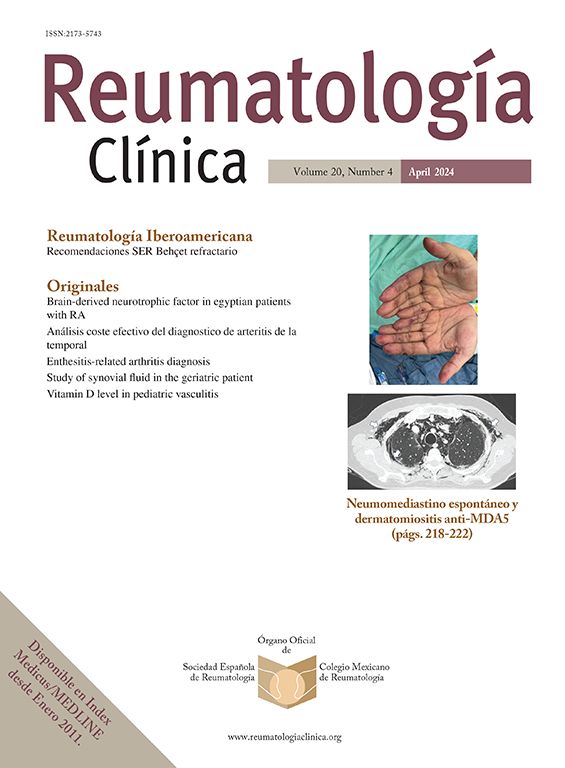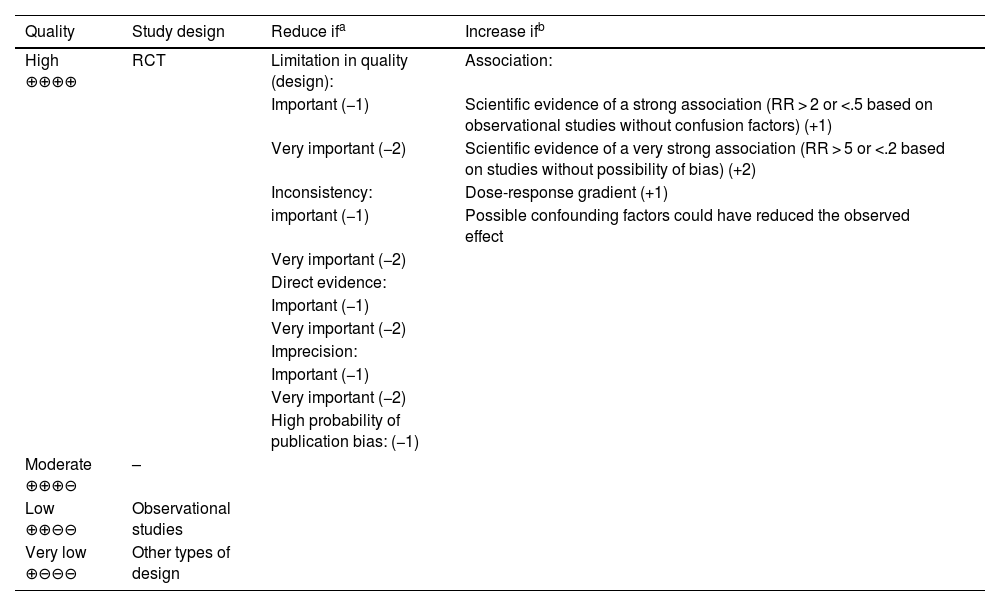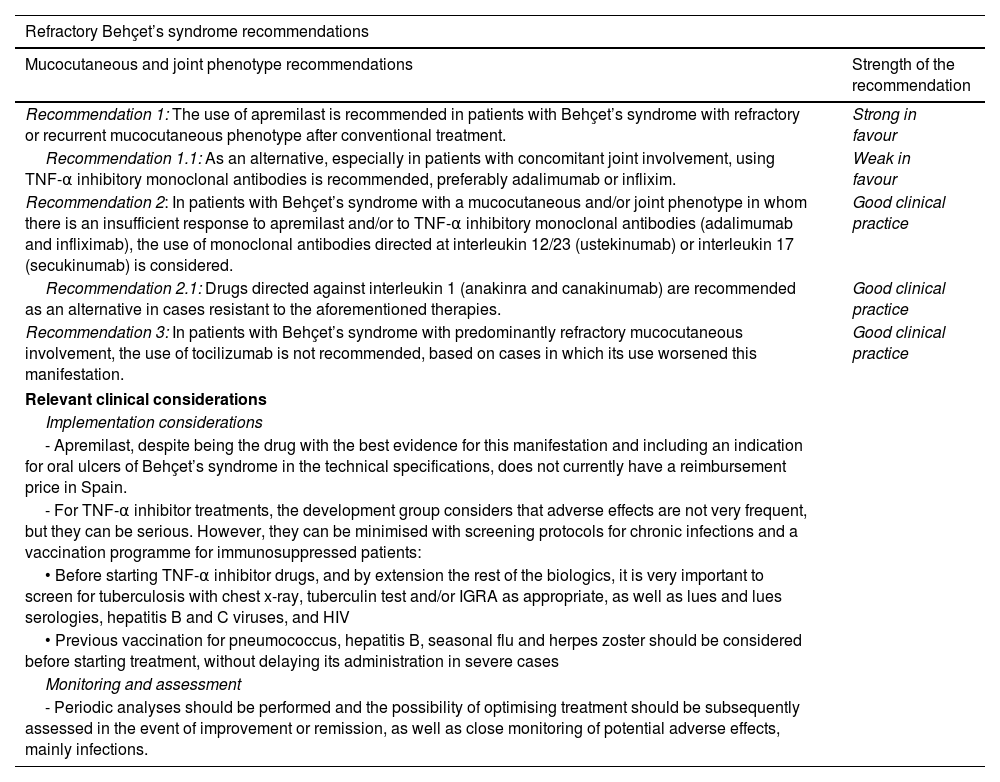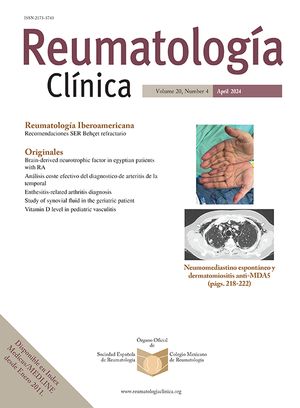To develop multidisciplinary recommendations based on available evidence and expert consensus for the therapeutic management of patients with refractory Behçet’s syndrome (BS) (difficult to treat, severe resistant, severe relapse) to conventional treatment.
MethodsA group of experts identified clinical research questions relevant to the objective of the document. These questions were reformulated in PICO format (patient, intervention, comparison and outcome). Systematic reviews of the evidence were conducted, the quality of the evidence was evaluated following the methodology of the international working group Grading of Recommendations Assessment, Development, and Evaluation (GRADE). After that, the multidisciplinary panel formulated the specific recommendations.
Results4 PICO questions were selected regarding the efficacy and safety of systemic pharmacological treatments in patients with BS with clinical manifestations refractory to conventional therapy related to mucocutaneous and/or articular, vascular, neurological parenchymal and gastrointestinal phenotypes. A total of 7 recommendations were made, structured by question, based on the identified evidence and expert consensus.
ConclusionsThe treatment of most severe clinical manifestations of BS lacks solid scientific evidence and, besides, there are no specific recommendation documents for patients with refractory disease. With the aim of providing a response to this need, here we present the first official Recommendations of the Spanish Society of Rheumatology for the management of these patients. They are devised as a tool for assistance in clinical decision making, therapeutic homogenisation and to reduce variability in the care of these patients.
Elaborar recomendaciones multidisciplinares, basadas en la evidencia disponible y el consenso de expertos, para el manejo terapéutico de los pacientes con síndrome de Behçet (SB) refractario (difícil de tratar, resistente grave, recidivante grave) al tratamiento convencional.
MétodosUn panel de expertos identificó preguntas clínicas de investigación relevantes para el objetivo del documento. Estas preguntas fueron reformuladas en formato PICO (paciente, intervención, comparación, outcome o desenlace). A continuación, se realizaron revisiones sistemáticas, la evaluación de la calidad de la evidencia se realizó siguiendo la metodología del grupo internacional de trabajo Grading of Recommendations Assessment, Development, and Evaluation (GRADE). Tras esto, el panel multidisciplinar formuló las recomendaciones.
ResultadosSe seleccionaron 4 preguntas PICO relativas a la eficacia y seguridad de los tratamientos farmacológicos sistémicos en los pacientes con SB con manifestaciones clínicas refractarias a terapia convencional, relacionadas con los fenotipos mucocutáneo y/o articular, vascular, neurológico-parenquimatoso y gastrointestinal. Se formularon un total de 7 recomendaciones estructuradas por pregunta, en base a la evidencia encontrada y el consenso de expertos.
ConclusionesEl tratamiento de las manifestaciones clínicas más graves del SB carece de evidencia científica sólida y no existen documentos de recomendaciones específicas para los pacientes con enfermedad refractaria a la terapia convencional. Con el fin de aportar una respuesta a esta necesidad, se presenta el primer documento de recomendaciones de la Sociedad Española de Reumatología específicas para el abordaje terapéutico de estos pacientes, que servirá de ayuda en la toma de decisiones clínica y la reducción de la variabilidad en la atención.










